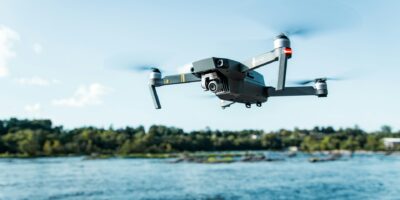Drone Construction Monitoring: Revolutionizing the Industry
As industries increasingly embrace technology, drone construction monitoring has emerged as a game-changer. Drones, or UAVs (Unmanned Aerial Vehicles), enhance efficiency, improve safety, and reduce costs in construction projects. Their versatility and capabilities make them invaluable assets on job sites.

Enhanced Surveying and Mapping
Traditional surveying methods, while reliable, often consume significant time and resources. Drones equipped with advanced sensors and cameras can perform these tasks faster and with greater accuracy. They fly over construction sites, capturing high-resolution images and generating precise maps. This geospatial data is crucial for site assessments and planning.
Progress Tracking and Documentation
Regularly flying drones over a construction site provides consistent and up-to-date imagery. Project managers and stakeholders can monitor progress in near real-time. This visual documentation helps in comparing ongoing work with project timelines, ensuring that everything stays on track. It also provides a visual record for future reference.
Safety Enhancements
Construction sites are inherently hazardous. Drones can access hard-to-reach or potentially dangerous areas without putting human lives at risk. They can inspect elevated or confined spaces, identifying potential hazards and ensuring compliance with safety standards. This proactive approach helps in mitigating accidents and injuries on-site.
Volume Calculations and Earthworks
Accurate volume calculations are crucial for earthwork projects. Drones equipped with photogrammetry software can quickly measure stockpile volumes and cut-fill areas. This information is essential for project planning and cost estimation, ensuring optimal resource allocation and minimizing wastage.
Environmental Monitoring
Construction projects often have environmental impacts. Drones can monitor environmental factors such as air quality, noise levels, and vegetation changes. This data helps in maintaining compliance with environmental regulations and mitigating ecological damage. It ensures sustainable practices throughout the project lifecycle.
Stakeholder Collaboration
Clear communication with stakeholders is vital in construction projects. Drone-captured imagery and data provide visual tools for more effective communication. Architects, engineers, contractors, and clients can collaboratively make informed decisions. This transparency leads to improved project outcomes and enhanced stakeholder satisfaction.
Inspection and Quality Control
Drones can thoroughly inspect construction elements such as roofs, facades, and other structures. They capture detailed images and videos, identifying defects or irregularities. Early detection of issues allows for timely interventions, ensuring that construction quality is maintained to the highest standards.
Time-Saving Benefits
The speed and efficiency of drones significantly reduce the time required for various construction tasks. From initial surveying to ongoing monitoring, drones perform these activities faster than traditional methods. This time-saving aspect accelerates project completion, benefiting both contractors and clients.
Cost Efficiency
Implementing drone technology can lead to considerable cost savings. Reduced labor requirements, lower equipment rental costs, and faster project timelines contribute to overall budget efficiency. Drones eliminate the need for scaffolding or cranes for certain inspections, further cutting expenses.
Data Integration and Analysis
Drones collect vast amounts of data that can be integrated into Building Information Modeling (BIM) systems. This integration allows for comprehensive data analysis, facilitating better decision-making. Combining drone data with BIM enhances project accuracy and coordination, streamlining construction processes.
Regulatory Compliance
Operating drones in construction requires adherence to aviation and privacy regulations. Construction companies must obtain the necessary permits and ensure that drone operators are certified. Compliance with these regulations is crucial for legal and safety reasons, and it ensures the responsible use of drone technology.
Training and Skill Development
As the use of drones becomes more prevalent, training programs are essential. Construction professionals need to acquire skills in drone operation, data analysis, and regulatory compliance. Investing in training ensures that the workforce can effectively utilize drone technology to its full potential.
Future Trends
The future of drone construction monitoring looks promising. Advancements in drone technology continue, with improvements in battery life, flight stability, and imaging capabilities. Integration with other technologies, such as AI and IoT, will further enhance the functionality and application of drones in construction.
The construction industry is witnessing a significant transformation with the adoption of drone technology. The advantages of improved efficiency, safety, and cost savings make drones an indispensable tool in modern construction projects.


